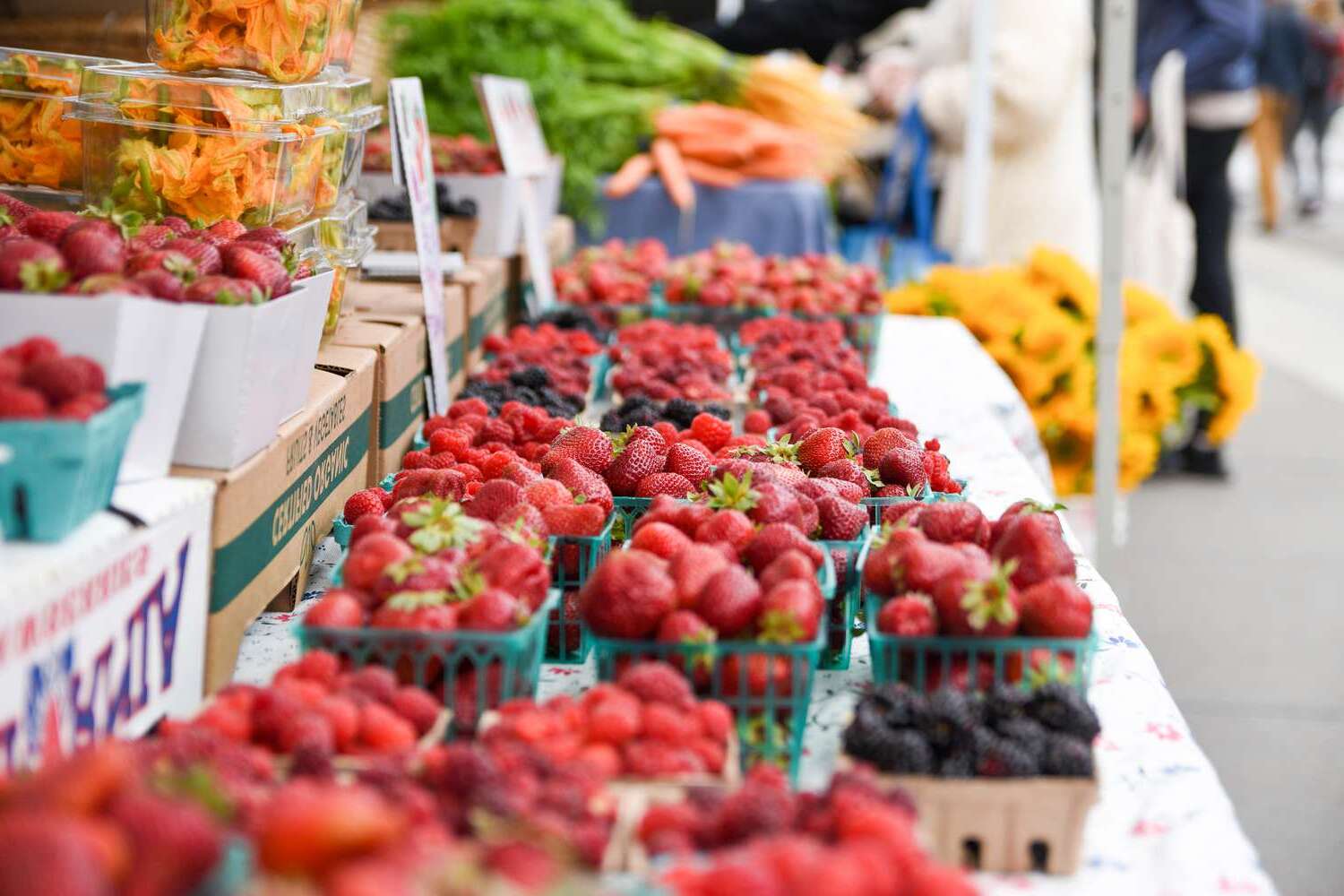
Ever wondered why farmers' markets are so popular? Farmers' markets offer more than just fresh produce. They provide a unique shopping experience, connecting communities with local farmers. Supporting local agriculture helps reduce carbon footprints and ensures fresher, tastier food. Plus, you can often find unique, seasonal items not available in regular grocery stores. Farmers' markets also foster a sense of community, where neighbors meet, chat, and share recipes. They are a great way to learn about where your food comes from and how it's grown. Ready to dive into some interesting facts about these vibrant markets? Let's get started!
What Are Farmers' Markets?
Farmers' markets are bustling hubs where local farmers, artisans, and consumers come together. These markets offer fresh produce, handmade goods, and a sense of community.
- Farmers' markets often feature locally grown produce, ensuring freshness and supporting local agriculture.
- Many markets operate seasonally, aligning with the harvest times of various crops.
- Organic options are frequently available, catering to health-conscious shoppers.
- These markets can be found in urban and rural areas, making fresh food accessible to many.
Benefits of Shopping at Farmers' Markets
Shopping at farmers' markets has numerous advantages. From health benefits to supporting the local economy, the perks are plentiful.
- Freshness is a major draw, as produce is typically harvested within 24 hours of sale.
- Consumers can meet the farmers who grow their food, fostering trust and transparency.
- Seasonal eating is encouraged, promoting a varied and nutritious diet.
- Farmers' markets often have lower carbon footprints due to reduced transportation needs.
Unique Finds at Farmers' Markets
Beyond fruits and vegetables, farmers' markets offer a variety of unique items. These can range from artisanal goods to specialty foods.
- Homemade jams and preserves are common, often made from local fruits.
- Handcrafted soaps and candles provide natural alternatives to commercial products.
- Baked goods, such as bread and pastries, are often made with local ingredients.
- Specialty meats and cheeses can be found, offering unique flavors not available in supermarkets.
Economic Impact of Farmers' Markets
Farmers' markets play a significant role in the local economy. They provide income for farmers and artisans while keeping money within the community.
- Direct sales to consumers mean farmers receive a higher percentage of the profit.
- Job creation is another benefit, as markets require staff for setup, sales, and management.
- Local businesses often see increased traffic on market days, boosting the overall economy.
- Community events at markets can attract tourists, further supporting local commerce.
Environmental Benefits of Farmers' Markets
Farmers' markets are not just good for people; they are also beneficial for the environment. They promote sustainable practices and reduce waste.
- Reduced packaging is common, as many vendors use minimal or eco-friendly materials.
- Less food waste occurs because unsold produce can be composted or donated.
- Sustainable farming practices are often used by market vendors, promoting soil health and biodiversity.
- Local sourcing reduces the need for long-distance transportation, cutting down on greenhouse gas emissions.
Social and Cultural Aspects of Farmers' Markets
Farmers' markets are vibrant social spaces that celebrate local culture and foster community connections.
- Cultural exchange happens as people from diverse backgrounds share food traditions and recipes.
The Heart of Community and Freshness
Farmers' markets aren't just places to buy fresh produce; they're vibrant hubs of community and culture. They offer a unique opportunity to connect with local farmers, learn about sustainable farming practices, and enjoy seasonal foods at their peak. Supporting these markets means investing in local economies and reducing the carbon footprint associated with long-distance food transport. Plus, the variety of goods—from organic vegetables to handmade crafts—ensures there's something for everyone. Whether you're a foodie, an environmentalist, or just someone who loves a good bargain, farmers' markets provide a rich, rewarding experience. So next time you see one, take a stroll through the stalls, chat with the vendors, and savor the freshness. You'll be contributing to a healthier lifestyle and a stronger community.
Was this page helpful?
Our commitment to delivering trustworthy and engaging content is at the heart of what we do. Each fact on our site is contributed by real users like you, bringing a wealth of diverse insights and information. To ensure the highest standards of accuracy and reliability, our dedicated editors meticulously review each submission. This process guarantees that the facts we share are not only fascinating but also credible. Trust in our commitment to quality and authenticity as you explore and learn with us.


